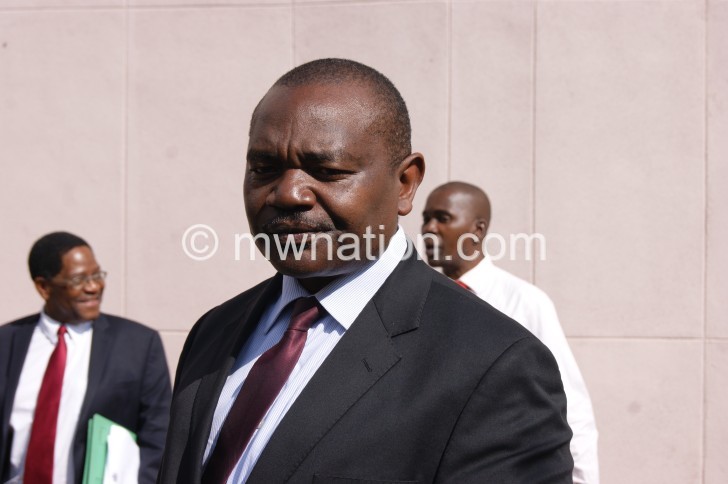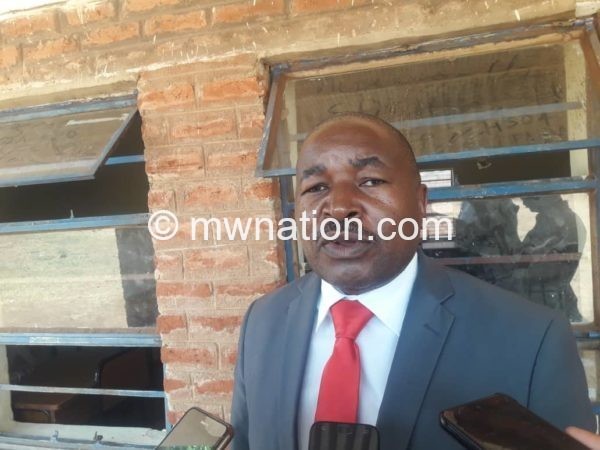AG tells off Legal Affairs Committee on poll date
Attorney General (AG) Kalekeni Kaphale says Parliament’s Legal Affairs Committee does not have the mandate to set the date for presidential elections, saying it is for the whole National Assembly to decide, not just a committee.
In his letter to the committee dated May 22 2020, the AG observes that the resolutions the committee made after its consultations with stakeholders, including Malawi Electoral Commission (MEC), were errors of law and that the committee misdirected itself.

Reads Kaphale’s letter in part: “I am of the considered view that your committee has misdirected itself and committed a grave error of law by believing that it can resolve to set a date for the fresh presidential election and dictate the same to MEC. To begin with, your committee is not Parliament at all; it is simply a committee of Parliament.
“On Page 124 of the judgement of the Supreme Court of Appeal, the court said and I quote: ‘It is important that Parliament fixes the date of a fresh election’. The above order was not made in a vacuum. It was informed by a reading of Section 80(1) of the Constitution.”
In an interview yesterday, the AG said he was responding because the letter the committee wrote to MEC was sent to him for legal advice and he has clearly said the committee cannot set a date.

Kaphale has since questioned the committee’s engagement of private lawyers in the matter when the AG, as government’s CHIEF legal adviser, is there to interpret the laws and the judgement.
However, committee chairperson Kezzie Msukwa described Kaphale as a compromised person in the case whose advice should be taken with caution.
Last week, the Legal Affairs Committee endorsed June 23 2020 as the new date for the fresh presidential election following a Constitutional Court order on February 3 which the Malawi Supreme Court of Appeal sustained on May 8. The committee later wrote MEC to continue preparations for the election on the date while awaiting Parliament to meet and put the law into effect.
Besides MEC, the committee met with officials from the Centre for Multiparty Democracy (CMD), MEC and the AG to map the way forward on a possible date for the fresh election with only 37 days to go before the 150 days court mandated for the voting and swearing-in of a new president.
Despite the deadline for the presidential election as demanded by court drawing closer, the National Assembly and the President—who make up Parliament—say they are still consulting on possible dates to meet.
Besides electoral-related matters, the House also needs to debate and pass the 2020/21 National Budget by June 30.
In an interview yesterday, Parliament spokesperson Ian Mwenye said he needed to consult on the meeting as the stand of the Speaker Catherine Gotani-Hara a week ago still stands.
Presidential press secretary Mgeme Kalilani, in a separate interview, said when the two parties have finished their discussions the nation will know.
The National Assembly was initially scheduled to convene for the budget meeting from May 8 to June 26 2020 but the meeting was called off as a coronavirus preventive measure after government announced a 21-day lockdown which did not materialise after it was challenged in court.
The Constitutional Court in requested Parliament to pass the Electoral Reforms Bills following the nullification of the May 21 2019 presidential election in preparation for a fresh presidential election within 150 days of the ruling.
Parliament had initially set May 19 2020 as the date for the fresh poll and also extended the tenure of office for legislators and councillors by one year following the passing of two Electoral Reforms Bills which were later rejected by President Peter Mutharika. In March, Mutharika withheld assent to the Election-related Bills that Parliament sent for his nod in February. He further refused to fire MEC commissioners who the Constitutional Court, presiding over the presidential election dispute, found to be incompetent.





